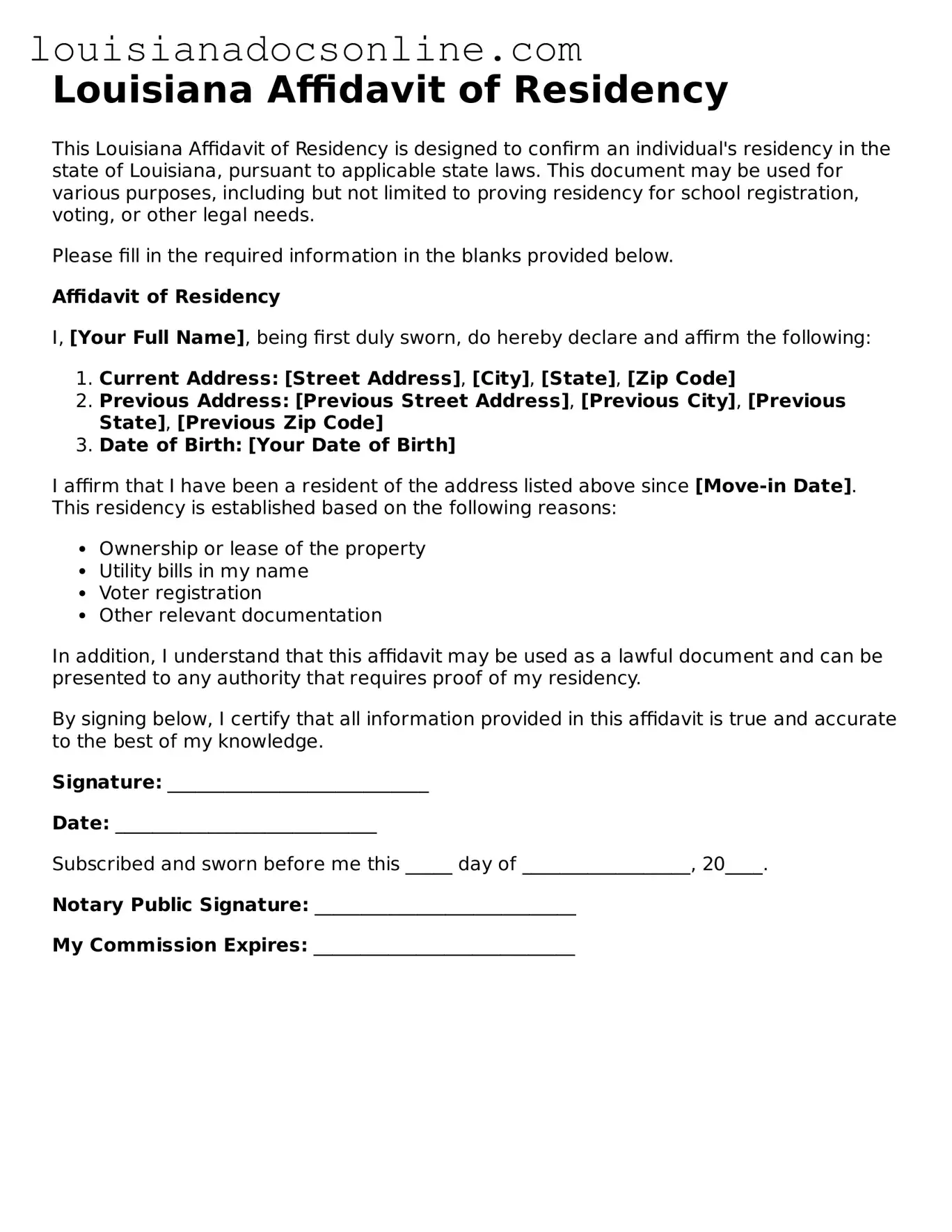Printable Affidavit of Residency Form for Louisiana
The Louisiana Affidavit of Residency form is a legal document used to verify an individual's residence in Louisiana. This affidavit serves as proof of residency for various purposes, such as enrolling in schools or obtaining certain benefits. Understanding how to properly complete and utilize this form can simplify many administrative processes.
Get This Form Now

Printable Affidavit of Residency Form for Louisiana
Get This Form Now
Don’t forget to finish your form
Finish Affidavit of Residency online — fast edits, instant download.
Get This Form Now
or
↓ Affidavit of Residency PDF
